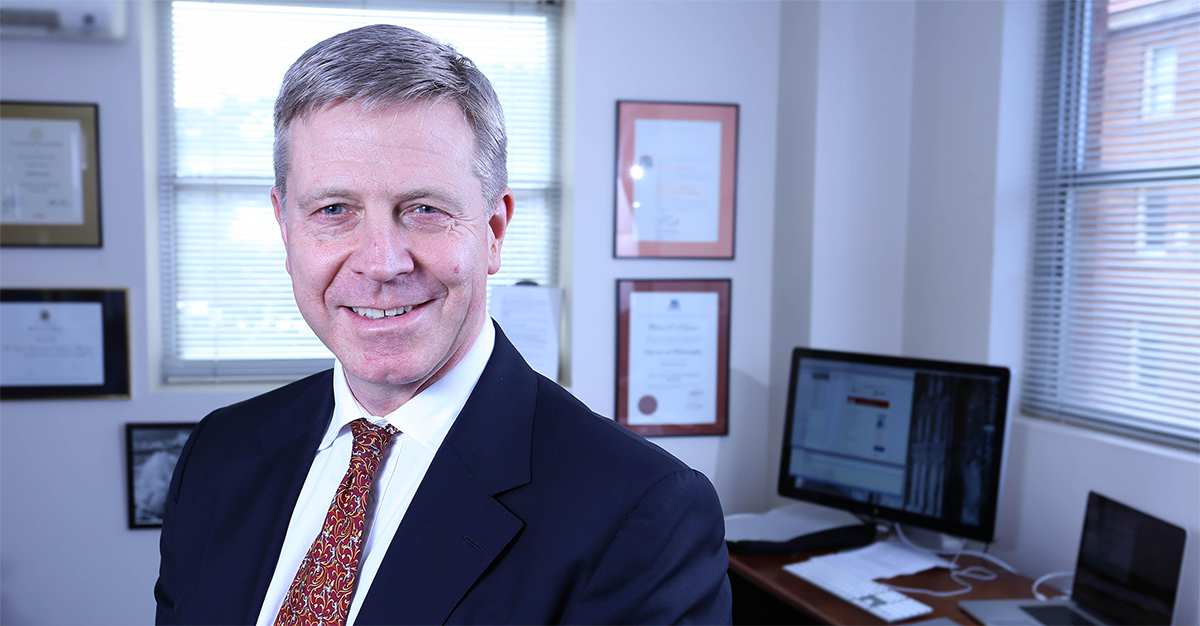
Professor Michael Grimm
A balanced career incorporating clinical work, teaching and research has earned Sydney gastroenterologist Professor Michael Grimm the GESA 2017 Outstanding Clinician Award.
Professor Grimm, from the University of NSW, credits many ‘mentors, peers, trainees and people I’ve supervised’ for influencing his career – saying he has learnt something from everyone he has worked with.
“I don’t think anybody develops an entirely idiosyncratic clinical persona. I think everybody has a little bit of others that they take on board – and then there are also others that they diligently avoid copying.”
Professor Grimm acknowledged the late Professor Neil Gallagher, Professor Warwick Selby and Professor Geoff McCaughan amongst the positive influencers in his career.
But he also enjoys and learns from younger colleagues. He told the limbic one of the highlights of each Australian Gastroenterology Week has been the young investigators’ projects.
“Watching trainees who start with very little knowledge, rapidly acquiring enough for them to go out into specialist practice, that is very satisfying to see. That maturing process is great fun.”
“It applies to medical students and PhD students as well but I see it in clinical trainees most dramatically.”
Professor Grimm, whose clinical practice focuses on IBD, also credits the contribution of his patients to a long and satisfying clinical career.
“Talking to patients and looking after long-term conditions like IBD means you actually get to know people very well over a number years. And that’s really enjoyable. You learn a lot about them, what drives them and what upsets them most about their illness.”
“And that’s different from the patients who come to me with reflux or IBS. I might seem them a couple of times, maybe do some investigations and maybe give them some new treatments but you don’t establish those same sorts of relationships which I really enjoy.”
Professor Grimm’s research has ranged from basic laboratory science through to more recent work on the psychological and microbiome influences on patients’ relapses.
He is also keen to see ‘imminent changes around molecular diagnosis and personalised medicine’ in gastroenterology, as has been seen in oncology.
“I know that all seems like a bit of a cliché but it’s already being seen in cancer.
Given the same molecular fingerprint, a melanoma might be treated in the same way as a kidney cancer, and that will come to IBD as well. I am sure of it.”
“We have lots of exciting new treatments but we don’t know which ones to use in which patients. We use the ones we know well first and move onto the ones we know less well and I’m not sure that is the right way to do it.”
Professor Grimm said staying abreast of changes in medicine is a huge, career-long challenge.
“One answer is to become super specialists so you only have to focus on one area but that’s not always good for patients,” he said.